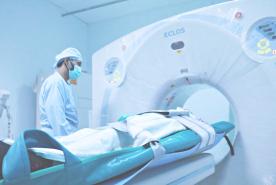August 12, 2014
What do you do if you have a headache, fever, or muscle pain? Chances are you use over–the–counter (nonprescription) pain medicine called analgesics. These help relieve pain, fever, and even inflammation. They are often used for managing arthritis, colds, headaches, muscle aches, menstrual cramps, sinusitis, and toothache.
While these drugs are effective and generally safe, they can cause serious health issues like kidney disease if not used properly. If you have kidney disease, continued use of these medicines can make it worse.
Use Carefully to Protect Your Kidneys
If you have low kidney function, you should follow your doctor’s guidance regarding pain management medications. Even with healthy kidneys, taking high doses for a long time can cause kidney damage by affecting kidney tissue or blood flow. This risk can increase with age.
Tips to Avoid Kidney Damage from Pain Medicines:
- Always follow the label instructions.
- Talk to your healthcare team about how often you use pain medicines.
- Stay hydrated when taking these medicines to avoid dehydration.
- Use pain medicines only as directed—at the lowest dose for the shortest time.
Join the NKF Blog Newsletter
Get inspirational stories and kidney disease resources delivered to your inbox every month. You'll gain practical insights and expert advice to help you better understand and manage your kidney health no matter where you are on your kidney journey. Subscribe today.
Types of Pain Medicines (Analgesics)
Acetaminophen (like Tylenol) is a common choice and safer for occasional use if you have kidney disease. Use only as directed, as high doses can cause side effects.
NSAIDs (nonsteroidal anti-inflammatory drugs) like ibuprofen and aspirin reduce pain and inflammation. These can harm the kidneys in high doses or with long-term use. People with low kidney function, heart disease, or high blood pressure should avoid NSAIDs unless advised by a doctor.
Tips for Safe Use
The best way to protect your kidneys is to read and follow your doctor's recommendations and following warning labels on all OTC analgesics.
- Avoid combination painkillers with multiple active ingredients like caffeine and acetaminophen in one pill.
- Avoid alcohol if using pain medicines.
- Store medicines out of children’s reach.
- Check with your doctor or pharmacist about interactions if you use other prescription drugs.
- Dispose of expired or unused pain medicines properly.
Using these guidelines can help you take pain medicines safely while protecting your kidneys.
Have Analgesics Affected my Kidneys?
Your doctor can check your kidneys by doing a simple blood test called a serum creatinine test. The results of the serum creatinine test can be used to estimate your glomerular filtration rate (eGFR). Your eGFR number tells your doctor how much kidney function you have.
A urine test for the presence of protein may also be done. Persistent protein in the urine may be an early indication of kidney damage.









